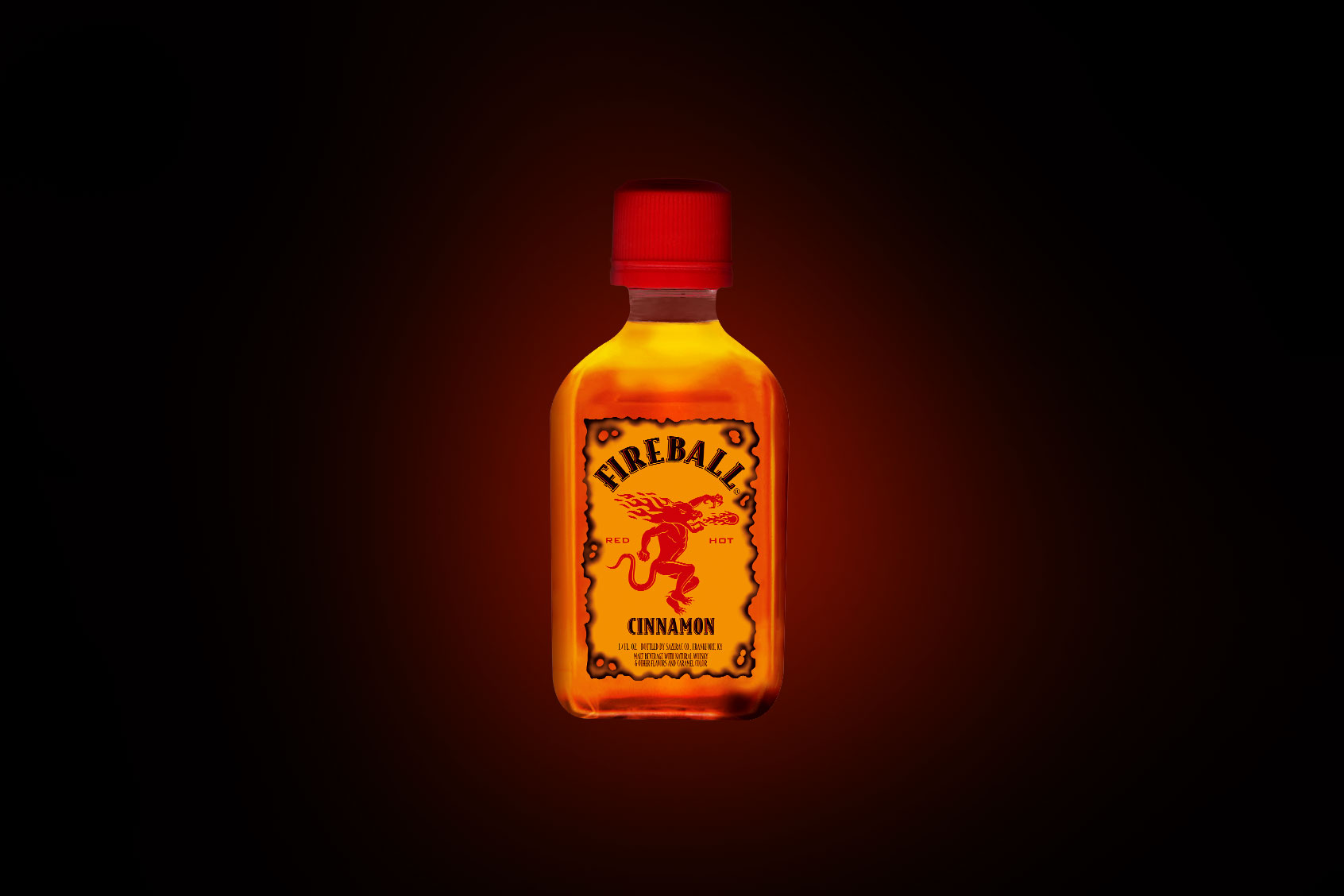If you thought Fireball Cinnamon — the small bottles of liquor commonly found at convenience stores and gas stations — contain whiskey, think again! Turns out, those mini bottles contain a malt beverage flavored to taste like whiskey, according to a class-action lawsuit filed against the maker of the beverage.
The Jan. 7 lawsuit was specifically filed against Sazerac, the parent company behind Fireball Cinnamon and its authentic twin Fireball Cinnamon Whisky, over the former brand’s deceptively similar packaging to the latter. The only way consumers are able to differentiate between the two brands is by reading the fine-print text on the Fireball Cinnamon bottle.
“The label misleads consumers into believing it is or contains distilled spirits,” says Anna Marquez, the plaintiff who filed suit in the United States District Court Northern District Of Illinois. The lawsuit added that the fine print on Fireball Cinnamon bottles is also misleading, stating that the words “With Natural Whisky & Other Flavors” are a “clever turn of phrase” because ‘consumers who strain to read’ the label will assume the phrase “Natural Whisky” is a separate item from “Other Flavors.”
“They will think the Product is a malt beverage with added (1) natural whisky and (2) other flavors,” the suit claims, per Today. “What the label means to say is that the Product contains ‘Natural Whisky Flavors & Other Flavors,’ but by not including the word ‘Flavors’ after ‘Natural Whisky,’ purchasers who look closely will expect the distilled spirit of whisky was added as a separate ingredient.”
The suit continues, saying that a distilled spirit like whiskey loses its classification as a spirit when blended with other ingredients. That’s why Fireball Cinnamon is allowed to be sold at various places that its counterpart is not.
The filing also cites local news stories about the confusion surrounding mini Fireball whiskey bottles and its appearance. In a 2021 article from the Hudson Valley Country, author CJ McIntyre questions the availability of Fireball at gas stations, writing, “You can’t buy wine, or any other hard liquor at any stores like this, so why is Fireball OK? Yes it’s convenient for Fireball drinkers, but what about vodka drinkers, or bourbon fans, I want to see a Tito’s display right next to the Fireball . . . LOL!”
Fireball Cinnamon products don’t contain any whiskey, but they include both malt-based and wine-based alcoholic beverages made to “capture the essence” of classic Fireball Cinnamon Whisky. The mini bottles are commonly sold for 99 cents each in stores across the U.S., including gas stations, convenience stores and grocery stores.
Per Today, the lawsuit further alleges that Sazerac “violated state consumer fraud statutes, breached express warranty and benefitted from unjust enrichment.” The suit seeks to represent “more than 100” plaintiffs alongside Marquez, who purchased the item at “thousands of stores including grocery stores, big box stores, gas stations and convenience stores.”
Want a daily wrap-up of all the news and commentary Salon has to offer? Subscribe to our morning newsletter, Crash Course.
In addition to Illinois, the lawsuit is seeking to cover consumers in North Dakota, Wyoming, Idaho, Alaska, Iowa, Mississippi, Arkansas, Kansas, Arizona, South Carolina or Utah who purchased Fireball Cinnamon. As outlined in the filing, the amount of damages for plaintiffs in the suit would exceed “$5 million, including any statutory and punitive damages.”
Marquez and her fellow plaintiffs are represented by Spencer Sheehan, a notable New York-based attorney known for tackling high-profile cases against major food and drink companies. Dubbed the “Vanilla Vigilante” for his work targeting food products that contain artificial vanilla, Sheehan also challenged Frito-Lay’s “Hint of Lime” Tostitos for using a “negligible amount of lime” in its chips and Kellogg’s strawberry Pop-Tarts for containing just as much apple and pear as strawberry.
Read more
about food lawsuits:

